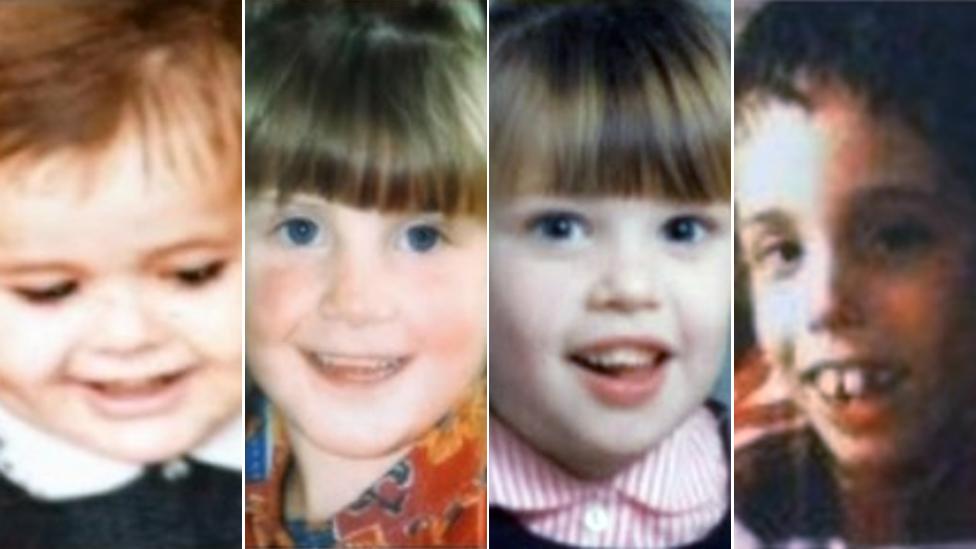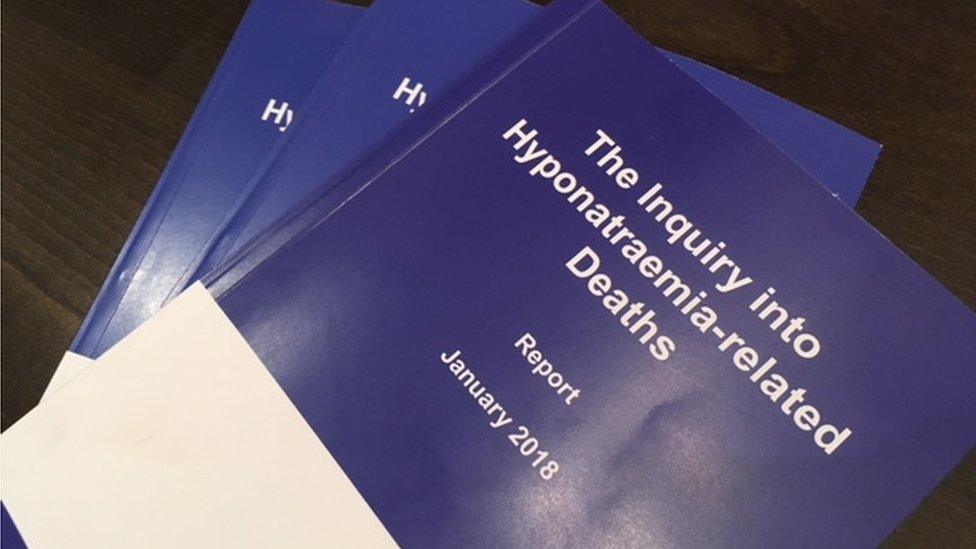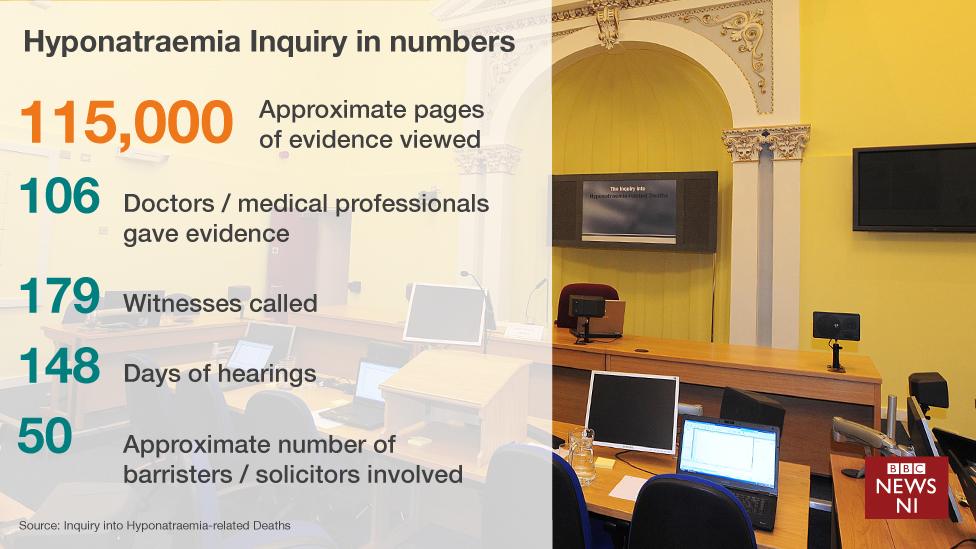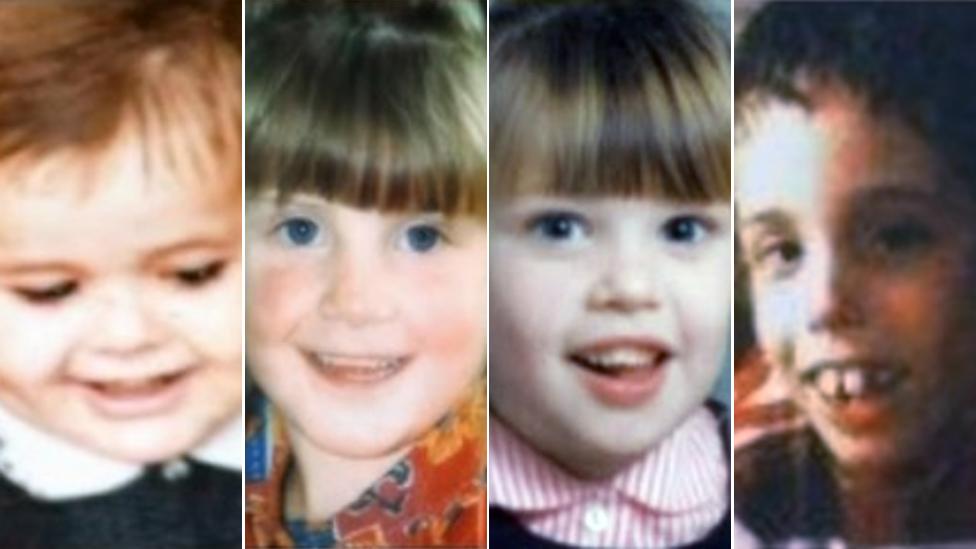Hyponatraemia: Dr Robert Quinn called before medical tribunal
- Published

Adam Strain, Raychel Ferguson, Claire Roberts and Conor Mitchell. Lucy Crawford's family chose not to release a photograph
A doctor involved in the Hyponatraemia Inquiry has for the first time been called before a fitness to practise tribunal.
Dr Robert Quinn has been summoned by the Medical Practitioners Tribunal Service to appear in February 2019.
He was involved in the care of Lucy Crawford.
She was one of five children whose deaths were investigated by the Inquiry.
The chair of the inquiry, Mr Justice O'Hara found four of those deaths were avoidable.
The BBC understands that at this stage four doctors are being investigated by the General Medical Council.
An investigation takes place before a doctor can be called before a tribunal.
Alan Roberts, father of Claire Roberts, and Marie Ferguson, Raychel Ferguson's mother, said they welcomed the move.
It is alleged Dr Quinn prepared a written report in which he failed to record information relating to Lucy who died in April 2000, that he reached the wrong conclusion in respect of fluids administered and gave a misleading impression of the care provided.
The BBC has contacted the Belfast Trust for comment.
Hyponatraemia is a medical condition that occurs when there is a shortage of sodium in the bloodstream.
An inquiry was set up in 2004 to investigate the deaths of Adam Strain, Claire Roberts, Raychel Ferguson, Lucy Crawford and Conor Mitchell.
The first witness was not called to the inquiry until April 2012 and it stopped taking evidence in November 2013.

The inquiry's report made 96 recommendations
A total of 106 doctors and other medical professionals gave evidence and 179 witnesses were called.
Fifty lawyers were involved, representing the inquiry, the families and the health trusts.

A total of 96 recommendations were made, including the establishment of a duty of candour on medical professionals "to tell patients and their families about major failures in care and to give a full and honest explanation".
- Published31 January 2018

- Published31 January 2018

- Published8 May 2018
